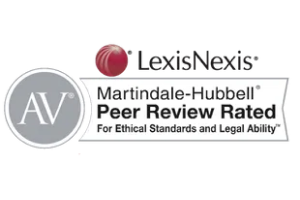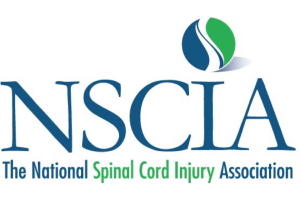Drunk Driving Crash
Atlanta Lawyers Handling Civil Claims and Lawsuits Against Drunk Drivers
Our law firm has substantial experience representing victims of drunk driving throughout all parts of Georgia. Traffic data compiled by government agencies consistently show that serious injuries and fatalities are much more likely to occur in crashes caused by intoxicated motorists. Thus, drunk driving victims often face the tragic death of a family member or the prospects of living with disabling injuries. In these circumstances, the need to retain a trial attorney who specializes in the fields of severe injury and wrongful death litigation is compelling. The lawyers at Ragland Law Firm, LLC are well regarded throughout Georgia for their aggressive pursuit of civil claims and lawsuits against drunk drivers and against those individuals or businesses which negligently sold or served alcohol to the impaired driver.
The Dangers and Tragic Consequences of Drunk Driving
Driving under the influence of alcohol or drugs is one of the primary causes of motor vehicle accidents in this country. According to the latest figures from the National Highway Traffic Safety Administration (NHTSA), approximately 35% of all fatal car accidents are caused by a driver whose blood alcohol concentration was 0.08 percent or higher. NHTSA also estimates that in 40% of all motor vehicle accidents involving a death, some alcohol had been consumed by at least one of the involved motorists.
The devastating human consequences of drunk driving cannot be overstated. NHTSA reports that in 2007, there were 12,998 people killed in “alcohol-impaired crashes.” There were 13,491 fatalities in alcohol-impaired crashes in 2006. NHTSA defines an “alcohol-impaired crash” to be one where at least one driver of the automobile or motorcycle had a BAC of 0.08 percent or higher. In 2007, there were 441 deaths due to alcohol-impaired crashes in Georgia alone.
This evidence demands only one verdict: Drunk driving is a serious criminal offense which imperils millions of innocent motorists and pedestrians every day.
Drunk Driving Crashes Are Different and Victims Have
Unique Legal Claims and Remedies Under Georgia Law
Drunk driving crashes differ significantly from motor vehicle accidents caused by sober drivers. Both events are obviously undesirable, and can result in injury or death to motorists and pedestrians. However, that is where the similarities end. Drunk driving crashes are not “accidents.” They are the result of a driver’s conscious and purposeful decision to consume alcohol or drugs and then operate a car, truck or other vehicle. If the driver had elected not to drink or chosen not to drive within hours of consuming alcohol, then the crash would most likely not occur. In that way, the crash is no “accident.” Furthermore, driving while impaired by alcohol or drugs is a crime punishable by the penal laws of Georgia. See O.C.G.A. §§ 40-6-391 (DUI), 40-6-393 (vehicular homicide) and 40-6-394 (serious injury by vehicle). Thus, drunk driving constitutes criminally reckless conduct, whereas driving errors made by sober motorists give rise only to a claim of negligence.
These differences will have a significant impact upon any civil case involving injuries or deaths caused by a drunk driving crash. Drunk driving victims should be aware that they have unique legal claims and that their legal case should not be handled in the same way as a typical motor vehicle “accident” involving negligent but unimpaired drivers. For example, in a drunk driving case, an injured victim can assert a claim for punitive damages against the drunk driver. In contrast, punitive damages cannot be sought in accident cases where the sober at-fault driver is only accused of being negligent. Also, cases against drunk drivers are given special treatment under federal bankruptcy law. Under the current bankruptcy code, a drunk driver is not entitled to obtain a bankruptcy discharge of any judgment rendered against him in any civil case pursued by the victims of the drunk driving crash. Therefore, the threat of bankruptcy should not alone deter victims from pursuing lawsuits against drunk drivers. Also, there are potential civil claims which are unique to drunk driving cases. These include:
- Dram Shop Liability – Civil claims against bars, restaurants and other businesses which unlawfully provided alcohol to an underaged driver or negligently sold or served alcohol to a “noticeably intoxicated” adult who then drove while impaired and caused an accident in which an innocent motorist or pedestrian was killed or injured;
- Social Host Liability – Civil claims against individuals, clubs, fraternities or employers which gratuitously served alcohol to an underaged driver or “noticeably intoxicated” adult who then drove while impaired and caused an accident in which an innocent motorist or pedestrian was killed or injured;
- Negligent Entrustment – Civil claims against the corporate or individual owner of a vehicle who negligently allowed that vehicle to be driven by someone the owner knew or should have known was unsafe because that driver was impaired by drugs or alcohol, or because that driver had a significant history of drunk driving;
Victims Should Only Entrust Their Case to a Georgia Lawyer
Who Has Experience With Civil Lawsuits Against Drunk Drivers
As compared to automobile “accidents” involving sober drivers, drunk driving crashes tend to be relatively more catastrophic and are associated with a higher incidence of fatality and serious injury. This alone is usually reason enough for the victim to seek out high quality legal representation from an experienced civil trial attorney. Cases involving severe personal injury or wrongful death should only be handled by civil trial attorneys who specialize in these fields and dedicate most or all of their time to these types of cases. Moreover, because of the differences and unique issues which arise in the context of drunk driving crash, victims should hire an attorney with considerable experience and expertise with civil cases involving impaired drivers.
Experienced personal injury attorneys who focus on civil drunk driving cases will understand and appreciate the meaningful differences between a drunk driving crash and all other automobile accidents. Such attorneys will better understand the criminal prosecution of the drunk driver and how that impacts or can be used in the civil case. They will be more accustomed to dealing with police and prosecutors. Trial attorneys who have handled many civil drunk driving cases will be more knowledgeable about how to prove that the driver was impaired by drugs or alcohol, and the rules of evidence relating to the use and admissibility BAC tests and other critical evidence. Lawyers who regularly handle civil drunk driving lawsuits will know how to seek and recover punitive damages against the drunk driver. These attorneys are also better equipped to investigate and determine the merits of other possible claims such as a negligent entrustment claim against the owner of the vehicle driven by the drunk driver, or a dram shop liability claim against the business which unlawfully or negligently provided alcohol to the drunk driver.
Atlanta Lawyers With a History of Representing Drunk Driving Victims
The attorneys at Ragland Law Firm, LLC focus upon severe injury and wrongful death litigation. They represent victims and they never represent insurance companies. They have handled hundreds of motor vehicle accident cases throughout all parts of Georgia. More importantly, they have represented dozens of drunk driving victims and prosecuted many civil lawsuits against drunk drivers. They also have handled several dram shop liability lawsuits in Georgia and Florida. No lawyer at Ragland Law Firm, LLC has ever defended a drunk driver in a criminal or civil case. The cause of preventing drunk driving and helping the victims of this crime has been a long passion of attorney Daniel Ragland as evidenced by his many years of service with the MADD organization. The firm considers the representation of drunk driving victims to one of its primary areas of focus and expertise.
Georgia Law Allows Victims to Sue Drunk Drivers for Punitive Damages
Any person injured in a car accident can recover “compensatory” damages from the at-fault driver. “Compensatory” damages are intended to repay actual damages incurred such as lost wages or medical expenses, and to compensate the victim for his or her pain and suffering. In addition to compensatory damages, injured victims of drunk driving can seek to recover “punitive” damages where alcohol or drug impairment contributed to causing the crash. Punitive damages cannot be recovered against a sober driver who was merely negligent in causing a car wreck. In Georgia, punitive damages can only be recovered where there is highly reckless conduct such as driving while intoxicated.
Georgia has a statute (O.C.G.A. § 51-12-5.1) which governs the award of punitive damages in civil cases. That statute declares that the dual purpose of punitive damages is to penalize a defendant for especially egregious wrongdoing, and to deter the wrongdoer or other persons who may act in a similar manner from repeating the dangerous acts again in the future. Thus, the stated purpose of punitive damages is not to provide additional “compensation” to the plaintiff, but to punish and deter reckless conduct. O.C.G.A. § 51-12-5.1(c) To recover punitive damages, a plaintiff must prove by “clear and convincing evidence” that “the defendant’s actions showed willful misconduct, malice fraud, wantonness, oppression, or that entire want of care which would raise a presumption of conscious indifference to consequences.” O.C.G.A. § 51-12-5.1(b).
Georgia’s punitive damage statute only applies to claims for personal injury. Georgia appellate courts have consistently held that punitive damages cannot be awarded in connection with a claim for wrongful death.
Under Georgia Law, Drunk Driving Is Considered Willful
and Wanton Conduct Which Can Support a Punitive Damage Award
Most automobile accidents are caused by driver negligence and involve no evidence of intentional, willful or wanton conduct by the at-fault driver. In such cases, the injured party can seek only compensatory damages and may not recover punitive damages. Georgia appellate courts have repeatedly said that there can be no recovery of punitive damages in motor vehicle accident cases even where the defendant is alleged to have been grossly negligent. To justify punitive damages, Georgia courts require that there be a showing of conduct which was willful, wanton or evidenced a conscious disregard for the consequences. In 1985, the Georgia Supreme Court held that drunk driving met this level of egregiousness, and would support of claim for punitive damages. In the landmark decision of Moore v. Thompson , 255 Ga.App. 236, 336 S.E.2d 749 (1985), the Georgia Supreme Court held:
“Evidence that the defendant’s driving under the influence of alcohol caused the plaintiff’s injuries is evidence of willful misconduct, wantonness, and that entire want of care which raises the presumption of conscious indifference to the consequences. Therefore, driving under the influence of alcohol so as to cause personal injuries to another is an aggravating circumstance in the act which authorize the jury to give punitive damages to deter the wrongdoer from repeating the act.”
Georgia Juries Have Wide Discretion in
Awarding Punitive Damages in a Civil DUI Lawsuit
Victims should realize that the imposition of punitive damages in a civil case against a drunk driver is not automatic or mandatory. The injured party is allowed to seek punitive damages, but the jury has complete discretion in deciding whether to award punitive damages. The plaintiff’s intent to seek punitive damages must be stated in the lawsuit filed against the drunk driver. O.C.G.A. § 51-12-5.1(d) The plaintiff is not required to state in his “complaint” (ie. lawsuit) the exact amount of punitive damages which he will ask the jury to award. The plaintiff may wait until the trial to disclose the amount of punitive damages he seeks. It should be noted that Georgia’s punitive damage statute contains a statutory “cap” on punitive damages in this state. Unless a defendant is shown to have “acted with the specific intent to cause harm,” punitive damages are limited to $250,000. O.C.G.A. § 51-12-5.1(g). However, there are exceptions to this $250,000 statutory punitive damages “cap.” Fortunately, driving while impaired by drugs or alcohol is one such exception. According to O.C.G.A. § 51-12-5.1(f), “…if it is found that the defendant acted or failed to act while under the influence of alcohol…, there shall be no limitation regarding the amount which may be awarded as punitive damages against an active tortfeasor….” Thus, in a drunk driving case, the jury can use its discretion to award punitive damages above $250,000 if it desires to do so.
A Victim Can Pursue Civil Claims Against the Drunk Driver
Regardless of What Happens in the Criminal Case
It must be remembered that the criminal prosecution and civil lawsuit against a drunk driver are two entirely different cases with their own unique evidentiary standards and other governing law. The criminal case involves the government and its accusation that the drunk driver has committed a crime punishable under the penal laws of Georgia. Therefore, in the criminal case, the burden of proof is the high “beyond all reasonable doubt” standard, and the drunk driver is afforded numerous rights under the federal and state constitutions. In contrast, the civil case does not involve the threat of criminal sanctions, and the drunk driver is not afforded all of the same constitutional protections which can make getting a criminal conviction more difficult. In particular, the victim in a civil lawsuit is only required to prove his case by “preponderance of the evidence,” a more lenient standard than the “beyond all reasonable doubt” burden of proof applicable to criminal cases.
Therefore, the outcome of a criminal case against the drunk driver does not control the outcome of the civil case and vice versa. A victim can still seek to hold a drunk driver liable in a civil lawsuit for personal injuries or wrongful death even where that drunk driver is never prosecuted for DUI or is found not guilty at a criminal trial. Put another way, “double jeopardy” does not apply to a victim’s civil claims and a drunk driver is not immunized from civil liability due to non-prosecution, a plea agreement, or a “not guilty” verdict in the criminal case.
Bankruptcy and Collection of Verdicts and Judgments
Rendered Against Drunk Drivers in Georgia
Once a drunk driving victim secures a verdict awarding damages, the next challenge becomes collection of that judgment. Of course, the drunk driver is legally responsible for paying any jury verdict rendered against him and thus, a victim can always attempt to collect directly against the personal assets and future earnings of the drunk driver. Importantly, because of amendments to the bankruptcy code signed by President Reagan in 1984, federal law prohibits any judgment rendered in a civil case against a drunk driver from ever being “discharged” in a bankruptcy proceeding. 11 U.S.C.A. § 523(a)(9) Nothing prohibits a drunk driver from filing bankruptcy and having his other debts discharged. However, the drunk driver is not allowed to use bankruptcy as a means to wipe out a judgment secured by a victim in a civil lawsuit. Therefore, nothing should preclude a victim from attempting to collect some or all of a damage award directly from the drunk driver.
Unfortunately, drunk drivers often have little financial means to satisfy the victim’s civil judgment. Therefore, automobile insurance becomes a critical source of collection. In terms of automobile insurance, the victim must first look to any policies which provide liability coverage to the drunk driver or the vehicle he drove at the time of the crash. Any such policies will have a “limit of liability,” meaning that the policy will pay the judgment only up to a certain stated amount. If the judgment is higher than the policy’s “limit of liability,” then the insurance company will not have to pay any portion of the judgment which exceeds that dollar limit. In Georgia, automobile policies providing liability coverage are allowed to cover awards for both compensatory damages and punitive damages. Appellate courts in some other states have held that because punitive damages are intended to punish the wrongdoer, it is against the public policy to allow liability insurance to cover the punitive damage award. However, appellate courts in this state have held that insuring against punitive damages does not contravene Georgia’s public policy. Therefore, where a jury imposes punitive damages against a drunk driver, the automobile policy covering that defendant can be used to satisfy both the compensatory and punitive damage award.
Uninsured Motorists Claims by Victims of Drunk Driving
If there is no liability coverage applicable to the drunk driver, or there is an insufficient amount of liability insurance to satisfy the compensatory or punitive damage verdict, the victim should then attempt to collect under any UM (uninsured/underinsured motorist) coverage applicable to the victim. Such UM coverage might be found in an automobile policy naming the victim or a resident family member as an insured, and/or an automobile policy covering the vehicle in which the victim was traveling at the time of the crash. In Georgia, the UM coverage provided in different policies insuring the victim, family members living in the victim’s residence, and/or the vehicle in which the victim was driving or riding in can be “stacked” together to maximize the total amount of insurance available to satisfy the claim or judgment. Unfortunately, UM coverage can only be used to collect a compensatory damage award. Georgia appellate courts have consistently held that UM insurance does not apply to punitive damages and cannot be used to satisfy any part of a verdict or judgment rendered as punitive damages.
Contact an Atlanta DUI Civil Attorney
There are no civil lawyers in Georgia more dedicated to the aggressive pursuit of civil claims against drunk or drug impaired drivers than the attorneys at Ragland Law Firm, LLC. We know firsthand that driving under the influence of alcohol or drugs is dangerous and causes the needless death and injury of many innocent adults and children. It is a serious crime and every drunk driver should be prosecuted and punished. In addition to criminal prosecution, we believe drunk drivers should be held accountable under Georgia’s civil justice system, and that drunk drivers should be made to fully compensate their victims. We believe a civil case plays an important role in the process of making the drunk driver face the tragic consequences of his or her choice to drink alcohol and then drive a motor vehicle. We are passionate about this important safety issue and we are committed to the representation of drink driving victims. Please contact us if you want to discuss the drunk driving crash in which you or a family member have been involved. If you want more information about pursuing a lawsuit against the bar, nightclub, restaurant, store or person who negligently sold or served alcohol to the drunk driver, then visit our Dram Shop Liability Practice Center .










